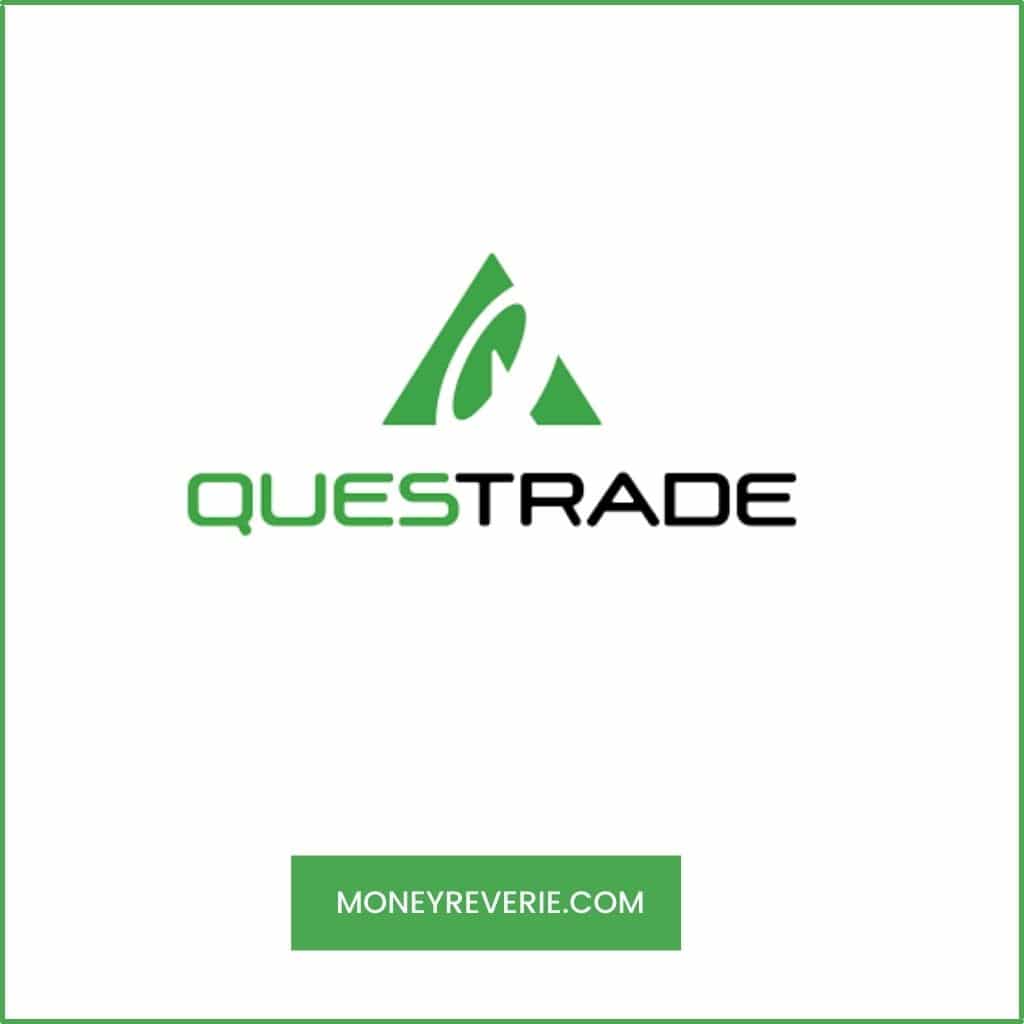As we strive towards a more sustainable world, clean energy is becoming an attractive investment opportunity. Clean energy ETFs are becoming increasingly popular among investors who want to align their investments with their values.
These funds invest in companies leading the charge towards a cleaner and more sustainable future, so you can make a positive impact while growing your wealth. They offer a diversified portfolio of companies involved in renewable energy, energy efficiency, and sustainable transportation.
In this article, we’ll highlight the 11 best clean energy ETFs in Canada that can help you positively impact the environment while potentially earning a solid return on your investment.
By the end of this article, you’ll better understand how you can invest in the future of clean energy and positively impact the world.
14 Best Clean Energy ETFs in Canada
Clean energy exchange-traded funds are ETFs that invest in stocks within the energy sector. These include solar energy, hydroelectric, wind, and geothermal companies.
Investing in clean energy ETFs not only aligns with your values but also has the potential to generate long-term growth in your portfolio. From wind and solar to hydropower and geothermal, we’ll explore the various types of clean energy sources that these ETFs invest in.
The following are the 11 best clean energy ETFs in Canada:
1. Harvest Clean Energy ETF (HCLN)
- Inception Date: January 14, 2021
- Stock Price: $9.32
- Assets Under Management: $27.16 million
- Management Expense Ratio: 0.40%
- Ticker: HCLN.TO
- Yield: 0.98%
- YTD Return: -4.14%
The Harvest Clean Energy ETF (HCLN) is a new, passively managed fund listed on the Toronto Stock Exchange (TSX) that invests in 40 equally weighted clean energy companies from North America, Europe, New Zealand, and Asia.
The fund is balanced semi-annually and has a management fee of 0.40% and an MER of 0.68%.
Although the fees are higher, the ETF provides a pure play on the clean energy industry and offers investors diverse global clean energy organisations.
2. BMO Equal Weight Utilities Index ETF (ZUT)
- Inception Date: January 19, 2010
- Stock Price: $20.49
- Assets Under Management: $441.00 million
- Management Expense Ratio: 0.61%
- Ticker: ZUT.TO
- Yield: 4.44%
- YTD Return: 5.75%
The BMO Equal Weight Utilities Index ETF (ZUT) is a Canadian ETF that provides exposure to 16 reputable Canadian utility companies. The fund is equally weighted and includes companies like Fortis, Brookfield, and Altagas.
The ZUT ETF has a history of steady returns since 2010 and pays out distributions monthly. The management fee is a maximum of 0.55% per year, with an MER of 0.61%.
The fund is traded on the Toronto Stock Exchange in Canadian dollars and is not a pure play on the clean energy industry.
However, it does allocate about a third of its assets to the renewable energy industry through the utility businesses held by the fund.
3. iShares S&P/TSX Capped Utilities Index ETF (XUT)
- Inception Date: April 12, 2011
- Stock Price: $26.10
- Assets Under Management: $281.8 million
- Management Expense Ratio: 0.61%
- Ticker: XUT.TO
- Yield: 4.01%
- YTD Return: 1.04%
Blackrock’s iShares S&P/TSX Capped Utilities Index ETF (XUT) currently holds ten reputable utility companies in Canada.
XUT is not a pure-play clean energy ETF, but it has a significant allocation to renewable electricity, currently at 18% of its assets.
XUT sends monthly distributions with a management fee of 0.55% and an MER of 0.60%. XUT has had a long history of steady gains since its inception in 2011, with a cumulative return of 129.4% (not including dividend reinvestment).
Utility companies are often reliable performers with strong dividends, which can replace growth. However, XUT may not be suitable for investors looking to derive investment returns purely from the performance of renewable energy-related securities.
4. iShares Global Clean Energy ETF (ICLN)
- Inception Date: June 24, 2008
- Stock Price: $14.88
- Assets Under Management: US$2.907 billion
- Management Expense Ratio: 0.41%
- Ticker: ICLN
- Yield: 1.13%
- YTD Return: -4.62%
The iShares Global Clean Energy ETF Canada is a conventional clean energy ETF with 98 top clean energy companies worldwide, including Enphase Energy and First Solar.
Unlike most other clean energy funds, it has heavy weighting for semiconductor stocks. Distributions are paid semi-annually in January and June.
It has assets under management of over US$5.76 billion and is one of the largest pure-play clean energy ETFs globally, with a portfolio of internationally diversified securities.
It has a low expense ratio, and the US-listed securities account for 45.45% of its asset allocation.
5. Invesco Solar ETF (TAN)
- Inception Date: April 15, 2008
- Stock Price: $48.14
- Assets Under Management: US$1.548 billion
- Management Expense Ratio: 0.67%
- Ticker: TAN
- Yield: 0.10%
- YTD Return: 6.55%
The Invesco Solar ETF (TAN) is a US-listed fund that invests in solar energy companies for power generation. It tracks the MAC Global Solar Energy Index and holds around 50 solar businesses around the globe.
TAN comprises 44 solar companies with a 46% allocation to US stocks, a 22% allocation to Chinese stocks, and the rest is allocated across other global markets.
The fund has a management fee of 0.50% and a total expense ratio of 0.66%. TAN is an ideal option for those who believe solar energy is the best option for renewable energy.
The New York Stock Exchange is the trading home of this fund, and it is valued in United States dollars.
6. First Trust Global Wind Energy ETF (FAN)
- Inception Date: June 16, 2008
- Assets Under Management: US$283.86 million
- Management Expense Ratio: 0.60%
- Ticker: FAN
- YTD Return: 2.73%
The First Trust Global Wind Energy ETF (FAN) is a clean energy fund focused on wind energy companies, which is often overlooked as a viable resource in the clean energy industry.
The fund is managed by First Trust and holds 48 reputable wind companies, including Siemens Gamesa, Boralex, and Vestas, paying out distributions every quarter with a 1.05% yield.
It has an expense ratio of 0.60% and trades on the NYSEARCA index in US dollars. With more countries establishing wind farms in coastal oceans, wind energy could experience a significant rise in popularity.
7. BMO Clean Energy ETF (ZCLN)
- Inception Date: January 20, 2021
- Stock Price: $15.42
- Assets Under Management: $68.46million
- Management Expense Ratio: 0.40%
- Ticker: ZCLN.TO
- Yield: 1.43%
- YTD Return: 1.61%
The BMO Clean Energy ETF, also known as ZCLN, is managed by the Bank of Montreal and tracks the S&P Global Clean Energy Index.
The ETF holds 76 diverse assets from both developed and developing markets and provides exposure to various clean energy markets, including some oil and gas refinery companies. Vestas Wind Systems, a Danish energy company, has the highest weighted stock in the fund with an 8.69% position.
The ETF is traded on the Toronto Stock Exchange in Canadian dollars and is a good option for investors interested in global clean energy ETFs in Canada.
ZCLN is a new fund with a lower cost than similar funds.
8. First Trust NASDAQ Clean Edge Green Energy Index Fund (QCLN)
- Inception Date: February 08, 2007
- Stock Price: $48
- Assets Under Management: US$1.66 billion
- Management Expense Ratio: 0.58%
- Ticker: QCLN
- Yield: 0.40%
- YTD Return: 1.27%
The First Trust NASDAQ Clean Edge Green Energy Index Fund (QCLN) provides investors with an innovative way to enter the clean energy industry, focusing on electric vehicle companies like NIO, XPeng, and Tesla.
The ETF holds 63 diverse stocks, with 87% of its holdings from the US market. QCLN is traded on the Toronto Stock Exchange in Canadian dollars and is eligible for all investment accounts.
It is one of the oldest green energy funds, with a modified market-cap-weighted index giving larger companies a more significant index weighting.
However, it is also considered a riskier option with a heavy focus on tech and EV stocks that are known to be volatile.
The QCLN fund has the largest Tesla holding among all clean energy funds, capitalizing on investment returns from the electric vehicle industry atop the broader clean energy market.
9. ALPS Clean Energy ETF (ACES)
- Inception Date: June 28, 2018
- Stock Price: $32.77
- Assets Under Management: US$263.75Million
- Management Expense Ratio: 0.55%
- Ticker: ACES
- Yield: 1.58%
- YTD Return: -8.70%
ALPS Clean Energy ETF (ACES) is a relatively new fund focusing on North American companies in the clean energy industry.
The ETF tracks the CIBC Atlas Clean Energy Index and focuses on pure-play clean energy companies. It also has a component that focuses on electric vehicles.
The fund is split between 82.3% American stocks and 17.6% Canadian stocks, strongly emphasising solar and wind companies. ACES is traded on the NYSEARCA index and has a management fee of 0.55%.
Although it is a bit costlier compared to other ETFs on the list, it provides investors with a pure-play opportunity to invest in the renewable energy industry.
10. Invesco WilderHill Clean Energy ETF (PBW)
- Inception Date: March 03, 2005
- Stock Price: $26.34
- Assets Under Management: US$491.1 million
- Management Expense Ratio: 0.62%
- Ticker: PBW
- Yield: 4.15%
- YTD Return: -3.96%
The Invesco WilderHill Clean Energy ETF (PBW) is the oldest US-listed clean energy ETF that seeks investment returns based on the performance of publicly-traded securities in the WilderHill Clean Energy Index, which is an independent index of global companies in the clean energy industry.
PBW invests about 90% of its funds in stocks belonging to the index, with a significant weighting in favour of companies in the industrial sector. The ETF holds roughly 83 companies, including EV makers such as Tesla, Nio, and Rivian. PBW has a high management expense ratio of 0.62%, making it costlier than some of the other clean energy ETFs.
PBW trades on the NYSEARCA index while it holds international companies. The index only tracks those that trade publicly in the US, which means any international stocks are likely American Depository Receipts.
11. Global X Lithium & Battery Tech ETF (LIT)
The Global X Lithium & Battery Tech ETF is suitable for investors seeking to invest in a rapidly expanding industry.
This ETF provides exposure to the entire lithium cycle, including companies engaged in mining, refining, and battery production.
The ETF has a total net asset value of $3.98 billion and invests in various global markets, including China (38.8%), the United States (21.7%), and Japan (10.1%). This makes it a globally diversified fund with a strong presence in key markets.
12. Invesco MSCI Sustainable Future ETF (ERTH)
Invesco MSCI Sustainable Future ETF (ERTH) is a clean energy ETF that invests in publicly-listed companies from the MSCI Global Environment Select Index.
The fund allocates 90% of its assets to securities held in the index, including companies contributing to a more sustainable economy.
ERTH ETF diversifies its asset allocation across a globally diversified basket of over 140 publicly-listed companies.
US-listed securities account for over a third of its allocation, followed by China-listed securities and Japan.
13. KraneShares Global Carbon Strategy ETF (KRBN)
The KraneShares Global Carbon Strategy ETF offers a unique approach to investing in the clean energy sector.
It allows investors to invest in cap-and-trade carbon contracts through a complex system of futures contracts. The ETF tracks the prices of credits in carbon markets, such as the European Union Allowances and the California Carbon Allowances.
Over the past year, the ETF has experienced a slight loss of -11.37%. Nonetheless, the intricacy of KraneShares’ system has allowed them to achieve impressive returns.
The ETF provides an alternative way to gain exposure to the clean energy industry.
14. VanEck Low Carbon Energy ETF (SMOG)
The VanEck Low Carbon Energy ETF (SMOG) is designed to follow the MVIS Global Low Carbon Energy Index, providing investors with a diverse range of leading renewable energy firms.
With over 70 global holdings, SMOG offers globally diversified portfolios. The fund has a consistent record of stable gains and has been trading since 2007.
How To Buy The Best Clean Energy ETFs in Canada in 2024
There are quite a number of Canadian brokerage platforms that let you buy ETFs and stocks. Here are the best platforms we recommend for buying clean energy ETFs in Canada:
Qtrade Direct Investing
With a history dating back to 2000, Qtrade Direct Investing is among Canada's oldest trading platforms, catering to beginner and advanced investors with equal aplomb. Its intuitive design and well-thought-out interface make it an excellent choice for novices, while its advanced research tools cater to the needs of more experienced investors.
Qtrade is an online Canadian brokerage that provides investment services to individuals, financial advisors, and institutions. The platform is known for its user-friendly interface, competitive pricing, and customer support. It was founded in 2001 and is headquartered in Vancouver, British Columbia.
It allows investors to buy and sell various financial products, such as stocks, exchange-traded funds (ETFs), mutual funds, bonds, and options.
The platform provides tools and resources to help investors make informed investment decisions.
Questrade
Questrade is an online discount brokerage established in 1999 with a $25 billion asset under management. Its popularity in Canada lies in its low commission, low trading fees, and multiple ranges of accounts. As a result, both beginners, intermediate and seasoned investors in Canada find Questrade attractive for DIY and active management investing. Key Features
Questrade is a Canadian online brokerage firm offering individuals self-directed investing and trading services.
It was founded in 1999 and has since become one of Canada’s largest and most popular online brokerage firms, with over $30 billion in assets under administration.
Questrade offers a range of investment products and services, including stocks, options, ETFs, mutual funds, bonds, GICs, and more. It also provides advanced trading platforms, competitive pricing, and excellent customer service.
Wealthsimple Trade
Wealthsimple Trade is a great trading platform that offers commission-free buying and selling of thousands of stocks. Its user-friendly interface and mobile-optimized investing dashboard make it easy to navigate and accept various payment methods, such as bank transfers and debit cards. In addition to traditional online stock trades, Wealthsimple Trade allows you to engage in other investment activities. It supports both taxable and registered (non-taxable) accounts such as RRSP and TFSA, and there is no minimum balance requirement when opening an account, making it accessible for investors with little money.
Wealthsimple Trade is a Canadian online brokerage and investment platform that allows individuals to buy and sell stocks and exchange-traded funds (ETFs) without paying trading fees.
It has a mobile app and a web-based platform that provides a simple and easy-to-use interface for investors to manage their investments.
Wealthsimple Trade offers other investment products, such as a Tax-Free Savings Account (TFSA) and a Registered Retirement Savings Plan (RRSP).
Questrade WealthSimple Trade QTrade Direct Investing Stock Trading Fee Stock trading fees are a minimum of 1 cent/share and range from as low as $4.49 up to a max of $9.95/trade No fees to buy or trade stocks $8.75/trade Buy or Sell ETFs No fee to buy ETFs but fee of minimum 1 cent/share and $4.95 to max $9.95 to sell ETFs No fees to buy or sell ETFs $8.75/trade Options $9.95 + $1 / contract Not available $8.75 + $1.25 Types of Accounts TFSA, RRSP, RESP, LRSP, LIRA, RRIF, LIF, margin, corporate, cash, partnership RRSP, TFSA, personal non-registered TFSA, RRSP, RESP, LIRA, LIF, margins, corporate accounts Transfer Fee Waiver Up to $150 per account Up to $150 on transfers of $5,000 or more Up to $150 on transfers of $15,000 on more Maintenance Fee None None $25/quarter if balance less than $25,000
Benefits and Downsides of Clean Energy ETFs
Like many things in life, clean energy ETFs have pros and cons. Here are the benefits and downsides of investing in clean energy ETFs.
Pros
- You get to invest in a wide variety of stocks
- You get to spread out your investment risk
- Clean energy ETFs are environmentally friendly
Cons
- Some ETFs are not 100% clean energy
- Clean energy ETFs are still relatively new, so their long-term potential is yet to be tested.
Are Clean Energy ETFs a Good Investment?
Clean Energy ETFs can be a good investment for those looking for long-term growth opportunities in the energy sector while supporting sustainable and environmentally conscious companies.
Clean Energy ETFs typically invest in a diversified portfolio of companies involved in renewable energy production, energy efficiency, and other sustainable practices. This can expose investors to a growing industry while promoting positive social and environmental impact.
However, as with any investment, there are risks, including market volatility and government regulations and policy changes.
It is important to conduct thorough research and consult with a financial advisor before making any investment decisions.
Overall, Clean Energy ETFs can be a good investment for those committed to sustainability and willing to tolerate some risk for potential long-term growth.
Final Thoughts on the Best Clean Energy ETFs in Canada
Investing in clean energy ETFs in Canada is a smart financial decision and a step towards a sustainable future.
With various options available, Canadians have ample opportunities to invest in companies driving the transition to clean energy.
Supporting these innovative and forward-thinking businesses can help build a cleaner, greener, and more prosperous world for future generations.
So, don’t wait any longer. Join the clean energy revolution and invest in the future today!
FAQs on the Best Clean Energy ETFs in Canada
What is the Best Clean Energy ETF for Canadians?
It all boils down to what suits you and which ETF you deduce will be profitable. The Harvest Clean Energy and the BMO Equal Weight Utilities Index are some of the best ETFs clean energy ETFs in Canada.
RELATED: Best Dividend ETFs in Canada.
Does Vanguard Have a Clean Energy ETF?
Even though Vanguard is one of the most common ETF providers in the market, there is no 100% Vanguard clean energy ETF Canada.
What is the Largest Renewable Energy Company in Canada?
The prime clean energy company in Canada is Enbridge. This company has a market capitalisation of almost $90 billion in US dollars. It is the biggest pure energy company out there at the moment.












